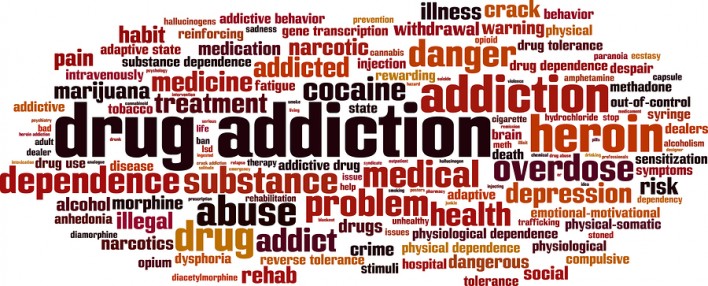Advice
Addiction
By: Cynthia Ebere-Anaba
Updated: 15 September 2015

“When an individual persists in use of alcohol or other drugs despite problems related to use of the substance, substance dependence may be diagnosed. Compulsive and repetitive use may result in tolerance to the effect of the drug and withdrawal symptoms when use is reduced or stopped. This, along with substance abuse are considered substance use disorders…”
Substance dependence can be diagnosed with physiological dependence, evidence of tolerance or withdrawal, or without physiological dependence.
Book appointmentAddiction can take many forms, though we may often think solely of addiction to alcohol or drugs, however it is not uncommon for people to have other addictions such as, sex, internet, shopping, gambling. Addiction, no matter what shape it may take is harmful both to the individual and to those around them. It negatively affects ability to function emotionally and cognitively. Often an addict does not comprehend or have the necessary skills to control their tendencies, or at least believes they are powerless in the face of it. Some imagine that their addictions are harmless until they try to stop and find they cannot do it. It is crucial that the individual experiencing addiction understands that it is their responsibility to want to quit and that accessing help makes their efforts more successful.
Drugs and alcohol work on neurotransmitters and pleasure centres in the brain, elevating mood or tranquilizing us. In an effort to maintain this state, an addict will engage in usage almost to the exclusion of all else in severe cases. Studies have linked addiction to genetic inheritance and emotional predisposition, however the resulting problem remains the same.
There are many ways in which someone can address their addiction, through twelve step programmes, rehabilitation, Acceptance and Commitment Therapy and Harm Reduction models. In some cases, psychotropic drugs are used to lessen withdrawal symptoms. Combined behavioural and cognitive psychological therapies can also be a good support. If you are living with someone who is experiencing addiction, it is important to remember that it is not your fault, nor are you charged with managing their recovery.
It can be painful to watch someone go through addiction but they must make the choice. You can be helpful and supportive and encourage them, but keep in mind that recovery is not always a perfect or smooth path. Relapse can occur. Try to encourage the other person without resorting to rescuing them. Just as someone who has broken a leg must engage in physiotherapy, so must an addict retrain their brains and bodies not to rely on chemicals.
There are numerous support groups available such as AA and Alco-Non as well as family support groups who can help address the stresses and strains. www.fsn.ie is a good place to start!
Don’t lose hope and never let the problem eclipse your love for the person experiencing addiction.
We can help you with following addictions:
- Alcohol
- Drugs
- Internet
- Gaming
- Gambling
- Sex
- Porn
- Shopping
MENTAL HEALTH PROFESSIONALS WORKING WITH Addiction ISSUES:
Approach: Gestalt Therapy , Cognitive Behavioural Therapy (CBT) , Humanistic & Integrative Psychotherapy , Mindfulness , Person-Centred Therapy , Solution-Focused Brief Therapy , Other
Works with: Couples , Individual Session
Specialities: Addiction , Anger , Anxiety , Isolation / Loneliness , Obsessive Compulsive Disorder , Personal Development , Personality disorder , Relationship issues , Self Care , Self-Esteem , Stress , Suicidal Ideation / Self Harm , Trauma , Work Issues, Work/Life balance
Next avaialble appointment: 14:00 11 February 2025
Approach: Cognitive Behavioural Therapy (CBT)
Works with: Individual Session , Couples
Specialities: Addiction , Anger , Anxiety , Bereavement / Loss , Depression , Personal Development , Relationship issues , Self-Esteem , Stress , Trauma
Next avaialble appointment: 16:00 29 January 2025
Approach: Cognitive Behavioural Therapy (CBT) , Person-Centred Therapy , Psychodynamic Therapy , Humanistic & Integrative Psychotherapy , Mindfulness , Gestalt Therapy
Works with: Individual Session
Specialities: Addiction , Anger , Anxiety , Bereavement / Loss , Co-Dependency , Depression , Domestic Violence / Abuse , Isolation / Loneliness , Neurodiversity , Relationship issues , Self Care , Self-Esteem , Sexuality (LGBTQIA+) , Stress , Suicidal Ideation / Self Harm , Trauma , Work Issues, Work/Life balance
Next avaialble appointment: 15:00 30 January 2025
NEXT ARTICLE
Eating Disorders
Search
Get The Support You Need
From One Of Our Counselors
News
Isolation
Anxiety
Depression
Relationship Issues
Counselling
Personality Disorder
Addiction
Trauma
Children and Adolescent
Anger
Bereavement
Chronic Illness
Communication Issues
Eating Disorder
Post natal depression
Stress
LGBTQI+
Panic Attack
OCD
Resilience
Parental support
Men's Mental Health
Category List
All Posts
News
Isolation
Anxiety
Depression
Relationship Issues
Counselling
Personality Disorder
Addiction
Trauma
Children and Adolescent
Anger
Bereavement
Chronic Illness
Communication Issues
Eating Disorder
Post natal depression
Stress
LGBTQI+
Panic Attack
OCD
Resilience
Parental support
Men's Mental Health

